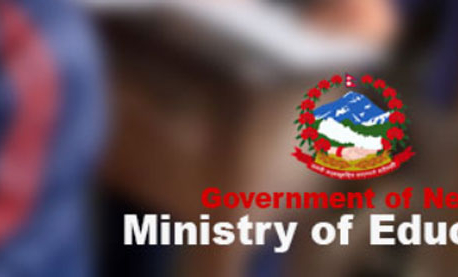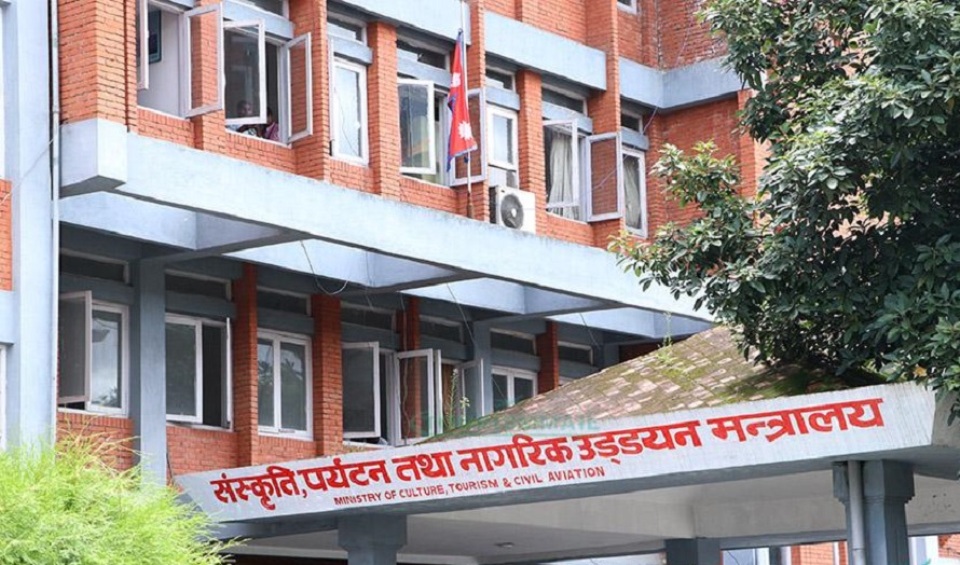
OR
National Education Policy 2076 BS
Universities stripped of power to grant affiliation to medical colleges
Published On: December 15, 2019 06:30 AM NPT By: Ruby Rauniyar
Educationists fear greater politicization of medical education
KATHMANDU, Dec 15: The recently introduced National Education Policy 2019 has stripped universities of the power to grant affiliation to medical colleges, and given the Ministry of Education the authority to coordinate the country’s medical education.
The National Education Policy has a provision for ensuring the quality of medical education through the coordination, leadership and directives of the Medical Education Commission.
With the new education policy coming into the effect, affiliation for new medical colleges shall be provided only with the prior consent of the University Grants Commission (UGC).
The education policy (Clause 10.17.1 ) states that all institutions and programs related to medical education shall henceforth be run in coordination with the Ministry of Education of the federal government.
“Necessary legislation shall be formulated to run all medical education-related institutions as an integrated whole,” the policy further states.
Educationists, however, have cried foul over the new arrangements made by the government.
Arguing that this will only make things worse, educationist Bidya Nath Koirala said it is likely to create further confusion whether medical education should be under the jurisdiction of the Education Ministry or that of the Health Ministry.
Koirala was a member of the High-Level National Education Commission that earlier proposed to establish a Medical Education University in order to bring better organisation and greater discipline to medical education in Nepal.
He has vented his ire, saying that the government’s move is likely to invite further political interference in this sphere.
Koirala recalled that the members of the commission in their proposal had recommended to the government to set up a separate medical university . “But instead of heeding our suggestion, the government has tried to engage in foul play in bringing medical education under the jurisdiction of the ministry,” he said. “The top guns at the ministry do not have the necessary expertise to design curriculum and run programs in medicine . The state of medical education will only worsen under their watch.”
The 65-page Medical Education Policy states that the universities in general shall be developed as institutions that do not grant affiliation to medical colleges. The policy further states that in case a situation arises for granting affiliation to a new medical college, this shall be done with the prior approval of the UGC and on the basis of proper justification. This is to make sure that the college is properly monitored for quality, it is further claimed.
Educationist Koirala further argued that a higher education fully controlled by the government would not serve the interests of education . The new policy has a provision for a University and Higher Education Council under the chair of the prime minister. The council is to direct education policy and the universities as well as guide the UGC.
Educationists are fearful that granting authority to the prime minister to direct the UGC is likely to cause politicization in medical education . “Notwithstanding the recommendations of the High Level Education Commission that cost state coffers Rs 25 million to produce, the government has come up with a policy that serves its own interests,” Koirala said. “They did not even allow the formation of a higher education commission.”
Vice Chancellor of Tribhuvan University Dr Dharma Kanta Banskota, however, argues that the Education Ministry will not have the authority to grant affiliation to medical colleges, and that the government has already expedited steps to form a Medical Education Commission to ensure proper management of medical education . He further argues that the quality of higher education will improve as the new policy has transferred all the powers being exercised by the university to the Medical Education Commission.
“In the past, the authority to determine the number of seats at medical colleges and to design curriculum rested with the university. But now all such work shall be conducted in coordination with the Medical Education Commission as stipulated in the policy,” Banskota said. “A Medical Education Commission is formed under an act duly passed by parliament. This has been given all the powers including those of regulation and supervision. The ministry will not exercise those powers.”
Spokesperson at the Ministry of Education Dipak Sharma said the new Education Policy was introduced keeping in mind the best interests of the education sector overall. He said the policy proposes to restrict universities from granting affiliation to private colleges as this practice in the past invited various anomalies. “The university will now not make granting affiliation into a business, charging certain fees to private colleges. They should now focus on enhancing their own quality,” he said.
Sharma, however, said the universities are not totally restricted from granting affiliations. “It is difficult to implement the points mentioned in the policy word for word. In the case of medical education, it is the universities that will still design curriculum, run programs and prepare educational calendars,” he said.
You May Like This

Concerns over education policy
Granting affiliation to medical colleges has remained a matter of contention in Nepal’s medical education system. Often the university officials,... Read More...

NUTA seeks recognition of central-level universities to state- owned universities
KATHMANDU, June 20: A delegation from the Nepal University Teachers' Association (NUTA) today called on Prime Minister Sher Bahadur Deuba... Read More...

Ministry seeks clarification from 15 academic institutions
KATHMANDU, Nov 8: The Ministry of Education, Science and Technology (MoEST) has sought clarifications from more than a dozen academic... Read More...








Just In
- NRM to announce two citizen heroes today
- Federal capital Kathmandu adorned before Qatar Emir's State visit to Nepal
- Public transport to operate during Qatari king’s arrival, TIA to be closed for about half an hour
- One arrested from Jhapa in possession of 43.15 grams of brown sugar
- EC to tighten security arrangements for by-elections
- Gold price drops by Rs 2,700 per tola
- Seven houses destroyed in fire, property worth Rs 5.4 million gutted
- Police pistol missing after drug operation in Bara, investigation underway








Leave A Comment